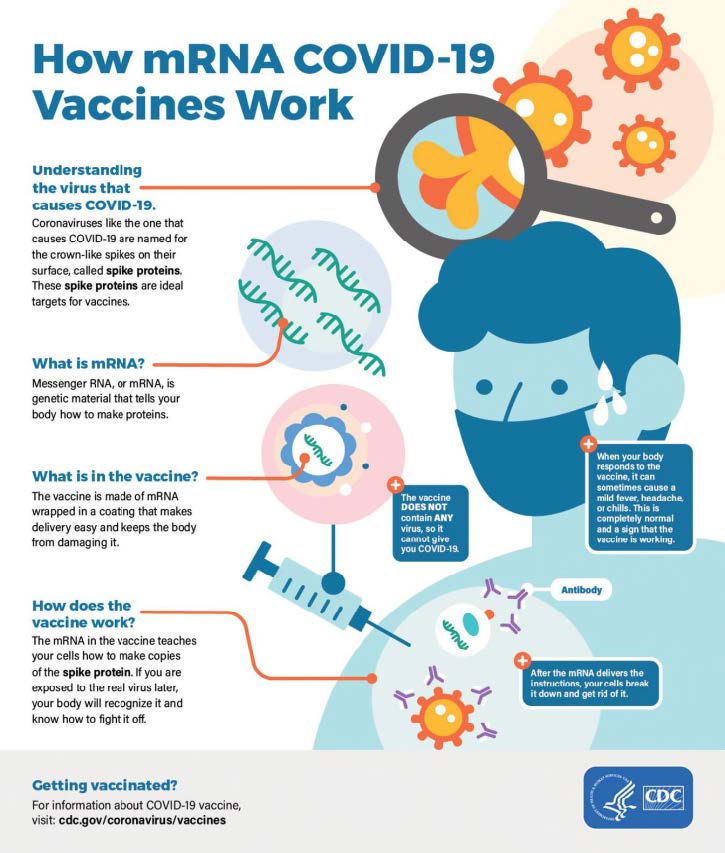
DEDUCTING IMPAIRMENT-RELATED WORK EXPENSES FROM YOUR INCOME (FORM 1040) AND FROM YOUR COUNTABLE INCOME FOR SSDI OR SSI
BY THOMAS M. BRINKER, JR.
Both the Internal Revenue Service (IRS) and the Social Security Administration (SSA) allow a taxpayer/recipient to reduce their income by allowable impairment-related work expenses (IRWE), but the application and reality of the deduction differ significantly.
On the income tax side, employees will rarely be able to utilize the deduction, especially with standard deduction amounts in excess of $12,000 for single L individuals. However, the application under Social Security's rules can significantly impact the Supplemental Security Income (SSI) or Social Security Disability Income (SSDI) benefit received, since IRWE reduce income earned to determine "Countable Income" for SSI or "Substantial Gainful Activity" for SSDI.
The Income Tax Deduction for ImpairmentRelated Work Expenditures
As individuals with special needs mature and enter the workplace, many are entitled to claim itemized deductions for their unreimbursed impairment-related work expenses under Internal Revenue Code Section 67(d). Impairment-related work expenses refer to expenses that an individual with a disability incurs for attendant care services at the place of employment. The expense must assist the individual in maintaining employment and qualify as a trade or business expense. Qualifying individuals under this Section of the Internal Revenue Code are defined as those having a physical or intellectual disability (including but not limited to blindness or deafness) that is a functional limitation to employment or a physical or intellectual impairment (including but not limited to impaired sight or hearing) that substantially limits one or more major life activities, such as performing manual tasks, walking, speaking, breathing, learning, or working.
According to the IRS instructions in Publication 502, Medical and Dental Expenses, an employee should include impairment-related work expenses on his or her Form 2106, Employee Business Expenses, or Form 2106-EZ, Unreimbursed Employee Business Expenses. These expenditures are then transferred to Form 1040's Schedule A (Line 16), Itemized Deductions, as an unreimbursed business expense that is not subject to prior law's 2%-of-AGI limitation on miscellaneous itemized deductions (Publication 529, Miscellaneous Deductions). If you are self-employed, enter your impairment-related work expenses on the appropriate Form (Schedule C, E, or F) used to report your business income and expenses. Some examples of IRS approved deductions include:
• An item(s) or service(s) that enables you to work (home computer, accessible vehicle);
• An item(s) or service(s) needed because of a physical or intellectual impairment (adaptive equipment, caretaker);
• A business expense paid that is unreimbursed by another source such as Medicare, Medicaid or private insurance (mileage to and from work);
As with any business expense, the cost must be "reasonable" (i.e., the expenditure represents the standard charge for the item or service in your community, and is paid for in the month of employment). IRWEs must be job related, but are not required to be solely incurred at your physical place of employment. If your employment requires having a laptop and specialized software at home for work, the unreimbursed cost of both are deductible on Schedule A for those itemizing deductions.
Example: Johnny is visually impaired and requires a reader to assist him while at work. The reader is available both during regular working hours and outside of Johnny's work schedule. Johnny can deduct the reader's fees for assisting him at work as an impairment-related work expense. (IRS Publication 529)
The Impact of ImpairmentRelated Work Expenses on SSDI and SSI
SSDI and SSI IRWEs, such as the cost of special transportation or work accommoda tions, can reduce your "countable income;" thereby increasing eligibility for SSDI or SSI disability benefits. For SSI, IRWE can reduce the impact of your income on your existing SSI benefits. However, if you work at home, any expense incurred for work-related accommodations to your home can not be deducted as IRWEs if they are deducted as a business expense in arriving at net income for income tax purposes (i.e., Schedule A or Schedule C if self-employed).
Substantial Gainful Activity for those Receiving Social Security Disability Income
The threshold amount for SSA purposes is an amount of earnings per month that will cause an individual to not be considered "disabled" under the program. The threshold amount is also referred to as the "substantial gainful activity" level of earnings. Certain expenses may be deducted from either employment or self-employment earnings for purposes of meeting the threshold amount. If SSA determines that your income exceeds the substantial gainful activity (SGA) threshold, SSDI or SSI disability benefits will be denied. Note: If self-employed, IRWE include a deduction for un-incurred expenses which are not available for employees. These amounts are indexed annually for inflation. For 2021, the threshold amount is $1,310 per month. For the visually impaired, the threshold is $2,190 for 2021 per month.
The Supplemental Security Income Program
The Social Security Administration program for Supplemental Security Income (SSI) is a needs-based program and available only if individuals meet prescribed "countable income" and "countable asset" requirements. The Social Security Administration (SSA) administers this program. SSA pays monthly benefits to people with limited income and resources who are disabled, blind, or age 65 or older. Blind or disabled children, as well as adults, are entitled to SSI benefits. Unlike Social Security benefits, SSI benefits are not based on prior work or a family member's prior work.
However, if individuals receive too much income or own too much property ($2,000 for individuals and $3,000 for couples), eligibility is at jeopardy for the SSI program. Social insurance programs (i.e., SSDI) are potentially available, regardless of income or assets, and typically depend on the amount contributed to the program, such as Social Security wage tax.
The Impact of ImpairmentRelated Work Expenses on "Countable Income"
As previously indicated, IRWEs, such as the cost of special transportation or work accommodations, can reduce "countable income;" thereby increasing eligibility for SSDI or SSI disability benefits or, for SSI, reducing the impact income may have on existing SSI benefits. In a recent SSA Spotlight, the Administration also cites outof-pocket expenses for medical services such as doctor visits and some attendant care services incurred to prepare you for work, attending to you while you are at work, or transporting you to and from work. SSA may also allow certain out-of-pocket expenses for transportation and modifications to your home, car, or van to allow you to work. The expense must be un-reimbursed, related to your disability(ies), and needed in order for you to work.
Employees
SSA allows employees to deduct IRWEs when reporting their income; however, wage-earners cannot deduct un-incurred business expenses (applicable only for selfemployed). If countable income exceeds the following amounts, the applicant/recipient will be ineligible for SSI: 2021 SSI Monthly Income Limits Individual whose income is only from wages: $1,673 Individual whose income is not from wages: $814 Couple whose income is only from wages: $2,467 Couple whose income is not from wages: $1,211
According to "Understanding Supplemental Security Income" on the SSA's website, not all income counts for the SSI program. The most common adjustments are:
• the first $20 of most income received in a month, and
• the first $65 of earnings and one-half of earnings over $65 received in a month, and
• the cost of impairment-related work expenses for items or services that a person with a disability needs in order to work.
How Impairment Related Work Expenses Affect Current SSI Recipients
When applying for SSI, the SSA will determine whether you have substantial gainful activity (whether your income level qualifies you for the benefit). As indicated, IRWEs can be subtracted from your income in determining SGA and may indicate that an applicant qualifies for SSI. Once you are approved for SSI, the SSA no longer considers SGA when determining your eligibility for benefits. However, if you do work, your earnings can affect your monthly benefit amount. This is because your benefit is the difference between your "countable income" and the federal benefit rate (for 2021, the Federal Benefit Rate is $794). IRWE deductions reduce the impact of earnings in qualifying for SSI and can increase your benefit
Where to Seek Answers?
Where to Seek Answers? If you are already receiving benefits, contact the SSA for more information about whether you have any IRWEs. It may also be helpful to talk with an experienced disability or special needs planning attorney, a Chartered Special Needs Consultant (The American College of Financial Servicers), or a financial planner specializing in SSA benefits and planning for those with special needs to see how employment may impact eligibility for benefits. 20 CFR § 404.1576 - Impairment-related work expenses (Social Security). 26 U.S. Internal Revenue Code § 67 (Income Taxation) •
OFF TO WORK : ELLIE'S CASE
An example from the SSA's website Ellie receives SSI benefits due to her disability. However, she currently works part time, earning $1,025 a month, which is the only income she receives. She has the following work expenses ( ssa.gov/ssi/spotlights/spot-work- expenses.htm):
$125 a month for union dues and insurance; and $250 a month to a special transportation service that she needs to get to and from work because of her disabling condition. Although Ellie has work expenses of $375 a month, only the $250 of her earnings used to pay for the special transportation service are related to her impairment and not counted in determining the amount of her SSI benefit. (Normally, public transportation is not an IRWE.) For Ellie, the $250 reduces her countable income in determining her SSI benefit as follows:
$1,025 (Gross wages)
-20 (First $20 of income Not counted)
-65 (First $65 of earnings Not counted)
-250 (IRWE)
$690 divided by 1/2
$345 (Countable income)
$794 (SSI Federal benefit for 2021) less
-345 (Countable income)
$449 (SSI Federal benefit)
Ellie is entitled to an earned income reduction in the amount of $335 ($1,025 of earnings less the first $20 of her earnings, plus the first $65 of her earned income and $250 of IRWE with the balance reduced by 1/2 of the amount of her earned income over $690). The difference between the FBR ($794) and her countable income ($345) is $449, which is her 2021 SSI benefit amount. If Ellie had not incurred any IRWE, her countable income would have been $470 ($1,025 of earnings less the first $20 of her earnings, plus the first $65 of her earned income with the balance reduced by 1/2 of the amount of her earned income over $940). The difference between the FBR ($794) and her countable income ($470) is $324, which is $125 less than had Ellie incurred the IRWE of $250. SSA does provide an Impairment-Related Work Expense Request Form that requires a formal request for consideration of Impairment-Related Work Expenses (IRWEs). The Form can be found at worksupport.com/documents/SubReqTemp.pdf.

ABOUT THE AUTHOR:
Thomas M. Brinker, Jr. is Adjunct Professor & Chair, MM Center for Special Needs Planning, The American College of Financial Services; Professor of Accounting, Arcadia University.